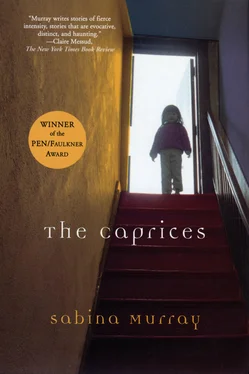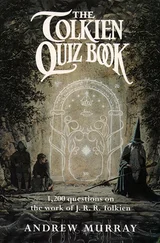Salas continued reading. Despite his disbelief, he could not put the paper down. Rogelio Roxas was said to have dug the Buddha out of the ground while on holiday in Baguio. The newspaper did not explain why Roxas was digging in this particular location, nor did it attempt to consider the profound implications of finding a Buddha in country overrun with Igorot headhunters and dominated by Roman Catholicism. Salas was amused. After all, the real Buddha was pure gold and definitely of Siamese design. He knew this for a fact, for he had seen it. The statue was twenty-eight inches tall and weighed about two thousand pounds. The head screwed off, opening a cavity filled with precious stones — sapphires and rubies — mostly uncut and definitely Thai.
The last time Salas and Balmaceda were together, Balmaceda was crying like a baby, squatting in a puddle deep enough to reach his ankles. They had been in the cave for a week. Their rice was rotten and the roof was too low to allow them to stand. The Japanese had been vanquished and now, robbed of the role of conqueror, Salas and Balmaceda found themselves living as primitives. There were bombs exploding all around, shaking dust into Salas’s eyes. But that wasn’t the worst. Salas couldn’t even decide what the best-case scenario would be. He had never considered being taken prisoner. His mind would not even shape that thought. He knew why officers turned to their daggers, although he didn’t believe the noble way out was necessarily noble. Sometimes killing oneself happened because of a lack of imagination. When an officer was stymied, he could always turn to Bushido, the warrior code, to guide him, and this code heartily endorsed seppuku . But what was the noble way for Salas? In his possession were the maps of the caves, the charts giving the location of the gold. He had orders to return the maps to the Japanese, so that when Japan eventually triumphed, they could retrieve their spoils. But lately, seeing his countrymen stacked like firewood, he had been having a hard time believing that the Japanese would necessarily triumph, even in the long years to come.
Living minute to minute was bad enough. Salas found Balmaceda repulsive. The two had not been friends in any real sense. They had passed time together, thrown into the same cramped circles by the necessities of war. Together, they had supervised the digging of subterranean vaults at Fort Santiago, an arduous task that had allowed Salas more than enough time to learn about his fellow officer. All Balmaceda read was military history: Alexander, Genghis, Attila — even Patton. He memorized battle strategies that he would never use; he held Hannibal’s elephants in rigid admiration and hoped to one day do something similar, if there were elephants handy. His mind ran along its well-greased runners. His hair grew in an even, thick black carpeting. He bit his nails when he thought no one was looking, and blamed his copious tears on the poor quality of air in the cave. His intention was to survive the war with Salas, then await orders.
“What if they’re all dead?” Salas asked.
“Who?”
“The men who would give you orders.” Salas rather liked the idea of no one outranking him, but this depressed Balmaceda. “If we live, you and I, we will be rich men,” Salas said, to cheer him up.
Balmaceda hadn’t considered that.
They made their pact shortly afterward. Salas volunteered to hide all the maps — after all, such documents were very incriminating. He could be hanged just for having them. Balmaceda agreed. Sometime in the distant future, the two would join together. Some man somewhere would have an order for Balmaceda, and Salas and he would follow it. They would assemble a team of engineers and language scholars to decipher the maps’ difficult coding. They would hire a team of workers to rival those of Cheops. Balmaceda would not move without Salas. Salas would not move without Balmaceda. Since until then the two men had been united in a similar cause, trust was irrelevant — betrayal unthinkable. Balmaceda drew his sword. He held it ceremoniously extended, which was awkward in their cramped quarters.
“What’s that for?” asked Salas.
“A blood pact,” he said.
Salas shook his head. “The war is over.” The sword tip trembled. “I think enough blood’s been shed.”
Balmaceda let the sword drop and wept.
A month after they parted, Salas realized that one of the maps was missing. He assumed that Balmaceda must have it. Salas noted this fact calmly, even thought it to be an accident.
Now, he realized that map must have led Rogelio Roxas to the gold Buddha.
In the months that followed the Japanese surrender, Salas had too much on his mind to be concerned with the location of one map or of Balmaceda. Being Japanese was no longer an option. To stay alive, he had to forget the maps, the gold, even himself. He had to realize that he would never see his family again, and that if he were lucky enough to reach his next birthday, it was because he had been the beneficiary of an unfair and capricious god. He had to invent himself as the least of all mankind, one who would not stand out, who was unworthy of any attention — positive or negative — and once he had achieved this barefoot, straw-hatted anonymity, he could consider himself lucky. It was time to grow accustomed to the different stars, a laughing destiny that was mutable and had tumbled him off his victor’s throne, stripped him of his garments, and delivered him — thick-tongued and thin-skinned — into the hands of barbarians.
Salas made his way to Manila as soon as he safely could. He thought living in a city would be safer and he was right. After the war, Manila was rebuilding itself, its people along with its streets. Losing oneself was easy. Not only that, but good help was hard to come by. Salas became a gardener, an expert on orchids and other flowering delights, and as he dug and potted, sprayed and tenderly wrapped the delicate blooms to the strong trunks of trees, he thought of the gold. All through the late forties and the fifties Salas longed to liberate the gold from its soft, loamy packing, to bring its brilliance back into the light of day. He thought of the tons of it, some in bars, the rest in jewels and works of art. Each brilliant bud recalled a more resplendent jewel, a tougher beauty, that was just waiting for its time to be liberated. The Cordillera Mountains, infested with headhunters, were also laced with the spoils of a brief and fallen empire. The cobbled streets of Intramuros delivered coded messages that would lead the informed hunter deep below the catacombs and caverns of the old city, whose wounds were slowly being stitched together with concrete and cinder block. Salas was obsessed with retrieval, but sometimes he wondered if this was more because of boredom than greed. The war had taught him about money and power.
Salas was for all intents and purposes a vassal, one of an army of houseboys, butlers, washerwomen, cooks, nannies, and maids. The garden sprawled out, intensely manicured in places, in others neglected with tangled vines on the wall and crumbling fountains overrun with toads. The main house had pillars like the White House and was a monument to fawning and bad taste. Salas only approached by the back door, which was unremarkable and less offensive to his aesthetic sensibility. He said little, which was blamed on his general lack of charm and his inability to speak good Tagalog; his employer and fellow employees assumed he had grown up speaking some Igorot dialect in Baguio. He shared a room with a ripe-smelling chauffeur and a house-boy. The houseboy had a guitar and the chauffeur had a drinking problem. This combination resulted in bad folk singing and loud renditions of movie pop songs. Sometimes there were girls outside the door to their room, sashaying back and forth on broad hips, their necks weighted down with cheap, heady blooms. Salas slept on a mat on the floor.
Читать дальше












